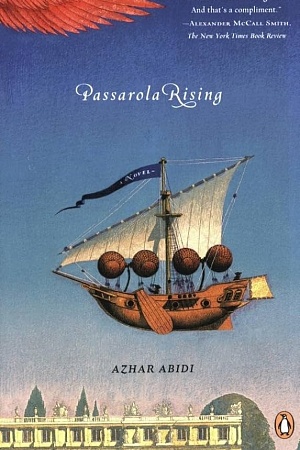The Romantic
Viking, $32.99 pb, 451 pp
Squinting at Fournier
There, at the back of Louis Édouard Fournier’s painting The Funeral of Shelley (1889), you can almost see him. One of the mourners to the right of Lord Byron is a tall man with light hair: one Cashel Greville Ross (1799–1882), the hero of William Boyd’s new novel, The Romantic. But Fournier’s depiction of Shelley’s cremation was a fabrication. The kneeling woman at the left, Mary Shelley, wasn’t in attendance, and neither was Cashel – for he didn’t exist.
The Romantic, Boyd’s most recent foray into the ‘whole life’ novel, is similar to the fictional biography Any Human Heart (2002) that made his reputation. Set against the upheavals of the nineteenth century and across several continents, Cashel’s life is an absorbing series of coincidences and capers. Like Forrest Gump, he always seems to find himself on the periphery of historical events. Cashel is born in rural Ireland and later survives the Battle of Waterloo; witnesses the cruelties of the East India Company’s campaigns in the Kandyan Wars; gallivants with the Romantic poets in Pisa; has a Dickensian stint in the Marshalsea; and pre-empts Richard Burton’s expedition to the Great African Lakes. Amid all these adventures, Cashel also manages a career as an author, becomes a beer brewer in Massachusetts, and unearths a black-market trade of antiquities in Trieste.
Such a buccaneering life story strains credulity. Not only does Cashel, Zelig-like, ingratiate himself with luminaries of the age, but he also manages to face death and danger several times and yet survive. At one point, he develops a serious laudanum addiction, which he manages to shake off within a few pages. Thankfully, Boyd builds an ironic awareness of nineteenth-century picaresque novels into The Romantic, and several characters comment on the unlikeliness of Cashel’s life: ‘You see, Cashel, everything you do has excitement, is dramatic. Has a story. Nothing is normal.’
Continue reading for only $10 per month. Subscribe and gain full access to Australian Book Review. Already a subscriber? Sign in. If you need assistance, feel free to contact us.
















Leave a comment
If you are an ABR subscriber, you will need to sign in to post a comment.
If you have forgotten your sign in details, or if you receive an error message when trying to submit your comment, please email your comment (and the name of the article to which it relates) to ABR Comments. We will review your comment and, subject to approval, we will post it under your name.
Please note that all comments must be approved by ABR and comply with our Terms & Conditions.